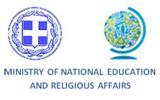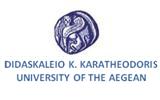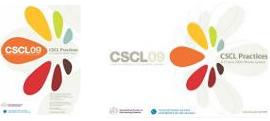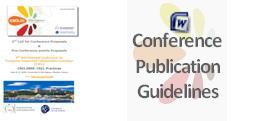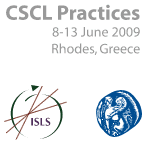
Call for proposals
Conference Events Proposals Information
Detailed Information
INTERACTIVE EVENTS
Interactive events enable participants to experience and investigate new technologies and novel uses of current technologies to support teaching, learning, research and collaboration. Ideally, they encourage discussion of theoretical and practical issues related to CSCL.
Interactive events may be scheduled in a particular time slot in single or multiple locations, occur asynchronously, or include a mixture of both. We encourage innovative formats for these events. Active attendee participation should be a focus for all events.
Examples of possible formats:
- Participants use a CSCL tool over several days, e.g., to discuss an issue of common interest to the CSCL community, develop an artifact, plan a study, or design a new tool.
- Participants use a conference session planner that allows people to share with others sessions that they plan to attend and leave comments and questions for the presenters.
- Participants use mobile phones, pda's or web browsers to communicate with each other and presenters during presentations. For example, attendees could pose questions and others could vote on salient questions.
- A social networking site is built to support the conference using either existing communities like Facebook or Ning, or by adapting or developing Open Source tools that can be used for other conferences or settings.
- Participants are given a data collection objective distributed across the conference site that is collected and aggregated via special purpose tools or computers and a web-based application. These data are then displayed publicly and/or analyzed in a session near the end of the conference.
- Teachers and students who have been engaged in a long term online learning community interact with other conference attendees in a virtual conference, perhaps using the very online environment in which they work (if appropriate).
- Participants use research tools that support novel ways to see and analyze collaborative learning process and products.
- These are only a few examples to convey the range of possibilities, and are not meant to be exhaustive. Demonstrations that include hands-on use are encouraged. Using Open Source or other free tools that allow the demonstration to be used in other settings is encouraged.
Submission Guidelines:
Interactive Event submissions will consist of a paper in the proceedings format not to exceed 3 pages, accompanied by additional information (not part of the proceedings paper). The corresponding proposal will consist of two parts:
Part I (Interactive Event Presentation)
- Title of interactive event.
- Organizers' names, affiliation, addresses, email, and URL (if appropriate).
- Purpose, description and significance of the event.
- Objective of the event from the participants' standpoint: what will participants (possibly including the organizers) learn?
- Description of the event format itself. Give a narrative of the flow of events, including roles of organizers and participants. Include examples of materials, hardware, software and other technologies used as appropriate.
Part II (Additional information)
- If there is more than one organizer, identify the point of contact and the roles of other organizers.
- Summary of scheduling needs. ("One-shot" event in a room? If so, how long? Asynchronous or face to face events distributed over the conference?)
- Number of participants you can accommodate (if there is a limit).
- Summary of equipment or data needs. (We expect to be able to provide a projector and network access, but we cannot commit in advance to meet all requests. Proposers of events requiring other equipment should begin discussions with conference organizers as soon as possible and consider other ways to fund the equipment rental. Similarly, proposers whose events require conference data (e.g., attendees, session names, schedule) should contact organizers about available data and their formats.)
- Indicate if there are related submissions to the papers track, or if you plan to submit a related poster, panel, or workshop proposal.
An Interactive Event submission has to follow the Conference Publication Guidelines.
The accepted Interactive Events will be published in the “CSCL2009 Community Events Proceedings”.
An Interactive Event proposal has to be submitted through the CSCL2009 Conference Submission System.
Submission Deadline: December 20, 2008
Camera ready deadline for accepted proposal: March 1, 2009
Interactive Events Chairs:
- Christopher Hoadley, Pennsylvania State University, USA
- Yannis Dimitriadis, University of Valladolid, Spain
- Taylor Martin, University of Texas, USA
